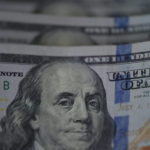Argentina’s president-elect, Javier Milei, received a warm welcome from investors on his first day, triggering a surge in the country’s stocks and bonds. However, concerns arise as local markets and banks reopen after a holiday weekend, with fears of a wave of Argentines withdrawing pesos to buy dollars.
Milei, known for his pledge to overhaul the economy by replacing the peso with the US dollar, faces challenges in managing the economic transition. While his radical proposal garnered support, the lack of specific details on the plan and budget deficit reduction leaves uncertainties about its implementation.

The reopening of markets and banks prompts speculation about potential peso withdrawals to secure dollars. Executives, while ensuring sufficient cash reserves, express concerns to regulators about the need for additional support to stabilize the system.
The president-elect’s unconventional approach to economic reform, including refraining from revealing cabinet appointments and planning international trips, adds to the uncertainty. With Milei emphasizing a spiritual meaning to his upcoming travels, the lack of clarity raises questions about the economic strategy.
Investors and Argentines are left guessing about the transition’s specifics, creating a risk of a disorderly process. The immediate liquidation of pesos to buy dollars on the black market becomes a perceived safer option, contributing to potential hyperinflation.
Alberto Ramos, Chief Economist for Latin America at Goldman Sachs, notes the country’s existing informal dollarization due to low confidence in the peso. Despite the challenges, supporters believe the market will give Milei the space to execute his plans.
As Argentina approaches this critical transition, concerns about potential cash withdrawals persist, prompting policymakers to consider measures to ease pressure on exchange rates. Milei’s success in navigating these challenges will determine the feasibility of his radical economic overhaul.








